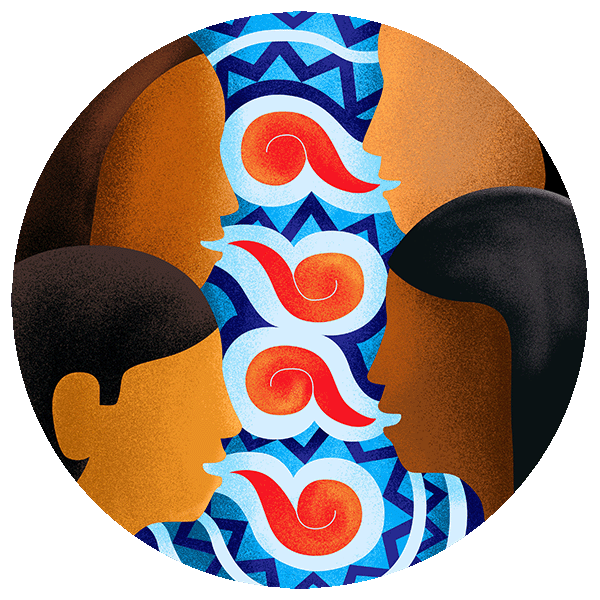
Indigenous Science Is Lifesaving And Rights To It Must Be Protected
Though collaboration is crucial to finding solutions for climate change, Indigenous People must be able to maintain, protect, and control their cultural heritage, sciences, and technologies. The UN Declaration on the Rights of Indigenous Peoples provides a legal framework for intellectual ownership by Indigenous communities of their traditional knowledge. However, many additional cultural barriers to equal-footed climate change collaboration exist, such as the automatic devaluation of Indigenous science by Western science practitioners.
Indigenous Resiliency Amidst Changes In Fire And Ice
A close relationship with local environments and ecosystems is more critical than ever in the face of a rapidly changing climate. This program features two perspectives from Indigenous communities that are practicing resiliency to global warming by adapting their traditional knowledge and science to put a changing climate into the context of their communities' history and lifeways.
INTERVIEWEES
Elizabeth Azzuz (Yurok), Cultural Fire Management Council
Jannie Staffansson (Saami), Arctic and Environment Unit of the Saami Council
Lessons From Honduras On Indigenous Biodiversity Work + Partnerships
Indigenous communities in Honduras have stewarded the Muskitia, a rain forest which includes one of the richest concentrations of biodiversity in the world, for centuries. Osvaldo Munguia is a representative of MOPAWI, an organization that partners with Indigenous groups to protect this UNESCO world heritage site from being overtaken by logging, mining, and forestry business interests.
MUSIC
"Remember Your Children," by Salidummay. Used with permission.
Introduction: "Burn Your Village to the Ground" by A Tribe Called Red. Used with permission.
10 Years Of UNDRIP In Asia - A UN Expert's Perspective
Indigenous Rights Radio Producer Dev Kumar Sunuwar interviews Joan Carling, former expert member at the UN Permanent Forum on Indigenous Issues, and former general secretary of the Asian Indigenous Peoples Pact. They reflect on the first 10 years of the implementation of the UN Declaration on the Rights of Indigenous Peoples. Carling advocates for increased policy cohesion and the prioritization of Indigenous rights in global policy-making on all fronts.
Indigenous Community Initiatives In Liberia Model Improved Livelihoods
Ezekiel Tye Freeman is the executive director of Green-PRO, which helps Liberian communities develop sustainable livelihoods for self-reliance. Beekeeping training programs, for example, offer a lucrative and environmentally friendly economic alternative to mining or slash-and-burn farming for individuals. Freeman points to high levels of unemployment among Liberia's Indigenous population as a major problem that his organization wants to attempt to alleviate.
Community Octopus Reserves In Madagascar For Food + Economic Sovereignty
George ‘Bic’ Manahira describes how his community established the
world's first community-run octopus, sea grass, and mangrove reserve in partnership with Blue Ventures, a UK-based NGO, in order to strengthen the traditional sea-resource-based livelihood of the coastal Indigenous communities in Madagascar. They hope to expand and improve on the model in collaboration with other Indigenous groups and leaders in the coming years.
"Our sacred objects are not to be hung on walls for decoration"
Indigenous Rights Radio Producer Avexnim Cojtí Ren investigates the movement to repatriate sacred objects, remains, and cultural patrimony taken without consent from Indigenous Peoples by governments, collectors, and individuals. Concepts of ownership, histories of oppression, methods of legal recourse, and recent examples of repatriation attempts all play an important role in the prospects for the return of heritage items to Indigenous Peoples.
Decolonize Justice Systems! An Interview With Dine' Lawyer Michelle Cook
In many Indigenous communities, dual justice systems operate in tandem: the European system, a colonial imposition characterized by hierarchical, punitive, written codicies, and the Indigenous system, which is often based in tradition and holistic in nature.
Human Rights Lawyer Michelle Cook (Dine') elaborates on the interactions between these two systems, and explains how communities can use the language of human rights to challenge the colonial legal system imposition in order to gain a seat at the table as independent nations with internationally recognized justice systems.
Indigenous Peoples Day In Nepal
The International Day of the World’s Indigenous Peoples is commemorated annually on 9 August. Ten years after the adoption of the United Nations Declaration on the Rights of Indigenous Peoples, Nepal-based Indigenous Rights Radio Producer Dev Kumar Sunuwar reflects with prominent Nepali Indigenous leaders on the country's progress in the implementation of international standards for Indigenous Rights.
UN Special Rapporteur Vicky Tauli-Corpuz Finds Inadequate Consultation Process in Honduras
Vicky Tauli-Corpuz, UN Special Rapporteur on the Rights of Indigenous Peoples, says she has found an inadequate process of consultation with Indigenous communities on the part of the national government during her visit to Honduras, where she was recently invited for a working visit to comment on a draft of a law regulating Free, Prior and Informed Consent. Indigenous Hondurans do not feel that they were adequately consulted on the content of the law. Further, the law does not meet widely accepted international standards of F.P.I.C.
